HERE IS AN AERIAL VIEW of the Savannah River Atomic Disposal Site, which is referred to in Today’s Focus by Public Service Commissioner Tim Echols. He raises questions of whether this site may be discussed at the meeting between President Trump and Russia’s Vladimir Putin. The image shows the Savannah River Site’s E Area, which is used for storage and disposal of waste materials. Source: Energy.gov.
IN THIS EDITIONTODAY’S FOCUS: USA Dragging Feet on Completion of Nuclear Disposal Site near Augusta
EEB PERSPECTIVE: Eleven p.m. Local News Not Important To Us Any More
SPOTLIGHT: Georgia Gwinnett College
FEEDBACK: Finds Concern, Then Engages with Forum Readers with Thoughts
UPCOMING: Lawrenceville Slightly Lowers Property Tax Rate For Current Year
NOTABLE: Snellville Physician Ben Abraham Wins National Preceptor Award
GEORGIA TIDBIT: Savannah Editor Gains Popularity with His Humorous Southern Stories
MYSTERY PHOTO: A Bronze Statue Asks You for Identification and Where Located
CALENDAR: Ribbon Cutting at Eastside Medical Center on July 25
TODAY’S FOCUSUSA dragging feet on completion of nuclear disposal site near Augusta
By Tim Echols
Vice chairman, Georgia Public Service Commission
JEFFERSON, Ga. | As one of your Public Service Commissioners, I have spent the last eight years crisscrossing Georgia, meeting constituents, listening to concerns, discussing energy issues, speaking to civic clubs, advancing technology—things you would expect from an elected regulator. One common concern that people have is the destiny of used nuclear material—whether from our nuclear power plants or our nation’s surplus weapons cache.
Plutonium is the active ingredient, obviously. Most of the country would be surprised to learn that a large plutonium disposal facility is under construction just over the Georgia-South Carolina state line at the Department of Energy’s Savannah River Site (SRS). Because the United States has dragged its feet in completing the plant, don’t be surprised if Mr. Putin questions President Trump about it.
The little-known facility began because the U.S. and Russia signed an agreement back in 2000 for our two countries to mutually destroy 68 metric tons of surplus weapons-grade plutonium, the equivalent of 17,000 nuclear weapons. That’s not a typo. It’s 17,000!
The decision was subsequently reaffirmed by succeeding administrations to eliminate 34 metric tons of U.S. surplus plutonium in rough parallel with Russians, which agreed to eliminate a similar quantity of Russian surplus plutonium. And believe it or not, the Russians further agreed, for the first time, to allow for verification of the disposition process by the International Atomic Energy Agency.
Like a gun buyback program in dangerous neighborhoods that results in weapons being melted down or rendered unusable, the agreement with Russia required the plutonium to be destroyed or materially altered so that it could never again be reused for weapons purposes. The chosen method of disposal was by burning up the plutonium as mixed oxide (MOX) fuel in commercial nuclear reactors.
As time has passed, the Russians constructed the necessary facilities and infrastructure to begin disposing of their surplus plutonium, while the U.S. facility at SRS is only about 70 percent complete. Citing increased costs, the Department of Energy wants to abandon construction of the MOX facility and pursue a completely new and risky disposition method which doesn’t convert the plutonium to a form that can never again be used for weapons purposes. As a result, the Russians have refused to proceed, and large quantities of surplus weapons-grade plutonium remain in storage in each country.
Yes, I believe that Mr. Putin will ask the president about the project. He’ll make it clear that if the U.S. changes its mind on disposing of the plutonium in accordance with the bilateral agreement that the two countries signed, Russia will do the same. And can you blame him?
We have so much surplus weapons-grade material that the MOX facility will be operating for at least 20 years. The facility is nearly three-quarters complete and provides thousands of jobs for the region. Reactors around the U.S. could utilize the material. But most importantly, it represents a tool to eliminate the equivalent of 8,500 Russian nuclear weapons. And that makes all the difference.
- Have a comment? Send to: elliott@brack.net
Local news at 11 p.m. not important to us any more
By Elliott Brack
Editor and publisher, GwinnettForum
JULY 17, 2018 | Do you still watch the 11 o’clock so-called local news? Pity. It’s not vital to us any more, and not part of our lives, except for the rare occasion when severe weather is approaching.
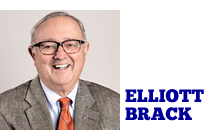 We stopped watching the so-called “late news” 10-15 years ago. We just got tired of all the “cheap news,” that is, the blood-and-guts of the most recent shooting, or car accident, or robbery. Seldom do we see solid major news stories on television. Anyway if the 11 p.m. report has a significant story, it most likely will appear in the next morning’s newspaper. We don’t necessarily need it the night before.
We stopped watching the so-called “late news” 10-15 years ago. We just got tired of all the “cheap news,” that is, the blood-and-guts of the most recent shooting, or car accident, or robbery. Seldom do we see solid major news stories on television. Anyway if the 11 p.m. report has a significant story, it most likely will appear in the next morning’s newspaper. We don’t necessarily need it the night before.
We’re more likely to watch local television at 6 p.m. if bad weather is approaching. We marvel at the way most of the local channels, especially WSB-TV, can, through modern meteorological devices, pinpoint when the rain or the lightening, etc. is predicted at a given area.
And we got tired of that worn-out local television phenomenon of a reporter pointing to a spot and telling us (get ready for this journalistic scoop)……“That’s where the event (whatever it was) happened,” as if that was important to anyone. Seldom does this pointing to the location add to the story, which could have happened 24 hours ago.
These days we’re benefitting (and enjoying) the streaming of entertainment through the Internet, through a Wi-Fi connection and our television set. We bought one of those Roku devices (one time cost $35), and simply plugged it into our TV set. It’s so easy, and I can say that, since I did the connection myself.
Now we subscribe to three services to get streaming through the Roku: Netflix (for about 5-6 years now), Prime Video through Amazon, and Acorn TV. We pay $10.99 for Netflix, and have all kind of movies, TV shows, documentaries, etc. available to us. We seldom go to the movies, but enjoy through streaming many current movies…a little later than people who attend first run movies.
We pay $119 a year for Amazon Prime, and with that we get free shipping when we buy one or two times a month some product from Amazon. We figure this shipping nets out, so that the entertainment part of Amazon Prime comes out entirely free. As for Acorn TV ($5.99 a month) , we enjoy that area for its line-up of British television episodes, some of which we have seen on PBS, but many more series which are shown in Britain, are available seldom in America. (We’ve just watched some Doc Martin shows not shown here previously).
So yes, our world has changed through our more selective watching of television. We’re more inclined these days to think and choose what to watch, rather than automatically taking in shows we once enjoyed on network television, like Andy Griffith, or All in the Family or MASH*. Luckily, we can sometimes catch them on re-runs. They’re still often fun.
On another note, we also suspect that many of you no longer anticipate or subscribe to the daily newspaper. While we lament their once-dominant importance, sadly, many newspapers are a ghost of what they once were. Many of you now get your news through social media, though these media can’t do what a great investigative newspaper story can. We hope newspapers find a route to become more vital in our lives.
Ways to get our news has changed, not necessarily for the better. Today I’d rather be to sleep earlier in bed than to stay up later for….not much.
- Have a comment? Send to: elliott@brack.net
Georgia Gwinnett College
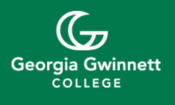 The public spiritedness of our sponsors allows us to bring GwinnettForum.com to readers at no cost. Georgia Gwinnett College (GGC) is a four-year, accredited liberal arts college that provides access to associate and baccalaureate level degrees that meet the economic development needs of the growing and diverse population of Gwinnett County and the northeast Atlanta metropolitan region. Georgia Gwinnett produces future leaders for Georgia and the nation. Its graduates are inspired to contribute to their local, state, national and international communities and are prepared to understand and to engage in an ever-changing global environment. GGC currently serves nearly 13,000 students pursuing degrees in 17 majors and more than 45+ concentrations. Visit Georgia Gwinnett College’s web site at www.ggc.edu.
The public spiritedness of our sponsors allows us to bring GwinnettForum.com to readers at no cost. Georgia Gwinnett College (GGC) is a four-year, accredited liberal arts college that provides access to associate and baccalaureate level degrees that meet the economic development needs of the growing and diverse population of Gwinnett County and the northeast Atlanta metropolitan region. Georgia Gwinnett produces future leaders for Georgia and the nation. Its graduates are inspired to contribute to their local, state, national and international communities and are prepared to understand and to engage in an ever-changing global environment. GGC currently serves nearly 13,000 students pursuing degrees in 17 majors and more than 45+ concentrations. Visit Georgia Gwinnett College’s web site at www.ggc.edu.
- For a list of other sponsors of this forum, click here
Finds concern, then engages with Forum readers with thoughts
Editor, the Forum:
![]() This is in response to George Wilson’s column regarding progressive Democratic candidates winning the battle of ideas and elections. For some of those ideas, e.g., Medicare for all, free tuition at public colleges and universities, and possibly Federally guaranteed jobs, I have a simple question – how are you going to pay for them?
This is in response to George Wilson’s column regarding progressive Democratic candidates winning the battle of ideas and elections. For some of those ideas, e.g., Medicare for all, free tuition at public colleges and universities, and possibly Federally guaranteed jobs, I have a simple question – how are you going to pay for them?
In 1835 Alexis de Tocqueville stated, “The American Republic will endure until the day Congress discovers that it can bribe the public with the public’s money.” Congress discovered that long ago and we now have an ever-increasing deficit with no plan to reduce it. In proposing programs both parties overestimate benefits and underestimate costs.
The ultimate group responsible is the American electorate. We want the benefits, but always look for someone else to pay the cost. As the old saying goes, “there’s no such thing as a free lunch.” The day of reckoning is coming.
— John Titus, Peachtree Corners
Dear John: Sometimes we get complaints from readers who take issue with the views of some of our contributors, yet say their comments are “not for publication.” But you rise to take issue, and for publication, and engage our audience with your thoughts. That’s what the GwinnettForum is seeking to do, to present views for consideration. Thanks for helping stimulate the conversation first presented here. –eeb
Send us your thoughts: We encourage you to send us your letters and thoughts on issues raised in GwinnettForum. Please limit comments to 300 words. We reserve the right to edit for clarity and length. Send feedback and letters to: elliott@brack.net
UPCOMINGLawrenceville slightly lowers property tax rate for current year
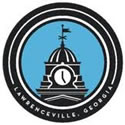 City of Lawrenceville officials voted to decrease the millage rate of 1.909 mills to 1.826 mills for the 2018/19 fiscal year. Input from public hearings during the weeks of July 2-9 culminated in the rollback vote on July 11, 2018. The vote carried by majority (3-2) with Council Members Tony Powell, Keith Roche and David Still in-favor of the rollback and Mayor Judy Jordan Johnson and Councilman Bob Clark opposed.
City of Lawrenceville officials voted to decrease the millage rate of 1.909 mills to 1.826 mills for the 2018/19 fiscal year. Input from public hearings during the weeks of July 2-9 culminated in the rollback vote on July 11, 2018. The vote carried by majority (3-2) with Council Members Tony Powell, Keith Roche and David Still in-favor of the rollback and Mayor Judy Jordan Johnson and Councilman Bob Clark opposed.
David Still, Mayor Pro Tem for the City of Lawrenceville, says: “The City’s portion of all property taxes collected in Gwinnett is only five percent of the total collected. We understand that the purpose of tax revenue is to support strategic progress for the City. We want to make sure we have a solid plan in place that will justify the need for further investment in a transformative way.”
Property taxes are three-tiered in Gwinnett and comprise city, county government and county school taxes. With this rollback, the City’s portion will yield a neutral tax revenue for the 2018/19 year.
Snellville makes minor adjustment to placement of garbage cans
Snellville’s City Council revised the city’s Solid Waste Ordinance, allowing residents to place their waste at the curb for a longer length of time.
 Trash and recycling cans can now be placed curbside for 24 hours prior to the regularly scheduled pickup time. Previously waste was allowed at the curb for only 12 hours. However, city officials said because of resident work and vacation schedules, this would be more convenient. Garbage carts and recycling bins cannot be left in front of the residence more than 24 hours following the regularly scheduled pickup time.
Trash and recycling cans can now be placed curbside for 24 hours prior to the regularly scheduled pickup time. Previously waste was allowed at the curb for only 12 hours. However, city officials said because of resident work and vacation schedules, this would be more convenient. Garbage carts and recycling bins cannot be left in front of the residence more than 24 hours following the regularly scheduled pickup time.
Also, garbage carts and recycling bins must be stored or placed only in the side or rear yard, inside enclosed structures or where they are otherwise not visible from the street. Residents can now also use any container that is open-top or a roll-off dumpster and three-cubic yard “Bagster” or similar type bag, but not front load dumpsters.
NOTABLESnellville physician Abraham wins national preceptor award
Gwinnett County family medicine physician Ben Abraham, DO, CMD, owner of Abraham Family and Geriatric Medicine in Snellville, recently received the American College of Osteopathic Family Physicians (ACOFP) Master Preceptor Award. Dr. Abraham was recognized at the 2018 ACOFP Convention and Scientific Seminars in Austin, Texas.
The award recognizes Dr. Abraham for his dedication in precepting Georgia Campus – Philadelphia College of Osteopathic Medicine (GA-PCOM) DO students in the practice of family medicine. Preceptors or clinical instructors help students apply classroom knowledge and concepts to real-world situations. With supervision and guidance, students develop the clinical judgment and skills to succeed in their chosen specialty.
Dr. Murray Berkowitz, associate dean of clerkships and core site development at GA-PCOM, says, “It is gratifying to see Dr. Ben Abraham awarded the Master Preceptor recognition by the ACOFP. He is a clinical associate professor and has been serving as a preceptor for GA-PCOM students for over 11 years.”
He adds: “He has been a leader in family medicine at the local, regional and national levels. By contributing to the health care of underserved communities, he serves as a role model for both physicians and medical students.”
Dr. Abraham has offered medical care in Snellville since 1992. His practice was named “Best of Gwinnett” in 2017. About the Master Preceptor award, he says: “I am tremendously honored to have received this award. Being a preceptor has always been important to me.”
He adds: “It is my way of giving back to the osteopathic profession. I also wanted to pour into the future generation of osteopathic physicians the knowledge, wisdom and compassion for patients that I have learned over the years. It has been a true honor and pleasure to precept these students.”
Presnell joins Peach State Credit Union in business development
Peach State Federal Credit Union announces the addition of Ed Presnell to their Business Development team. Presnell will be responsible for the cultivation and management of relationships in Richmond County, Ga. and Aiken County, S.C.
Presnell’s background includes more than 13 years of experience within the credit union industry. His deep rooted connection to Augusta began in 1971 when he moved to the area following his graduation from Clemson University with a degree in Economics. Since then, he has served the community in a variety of ways including past president of the Augusta Rotary Club, Board Member and Treasurer for the African American Credit Union Association, the Imperial Community Theatre, and the Augusta Sports Council to name a few.
Peach State entered the Augusta market in 2015 when they merged in Richmond Community Federal Credit Union. The following year brought continued expansion with the addition of Richmond County Teachers FCU, which aligned with Peach State’s roots as an education-based credit union. Beech Island Credit Union also joined Peach State in 2016, providing another branch to Augusta area members and marking the credit union’s expansion into South Carolina.
RECOMMENDEDAn invitation: what books, restaurants, movies or web sites have you enjoyed recently? Send us your recent selection, along with a short paragraph (100 words) as to why you liked this, plus what you plan to visit or read next. Send to: elliott@brack.net
GEORGIA ENCYCLOPEDIA TIDBITSavannah editor gains popularity with his humorous Southern stories
During the middle of the 19th century, William Tappan Thompson gained national popularity as a writer of humorous stories. He was best known for creating the fictional character Major Joseph Jones, a down-to-earth Georgia planter who wrote dialect letters about his courtship, rural life, and travels. These letters, originally appearing in periodicals that Thompson edited, were published in Major Jones’s Courtship and Major Jones’s Sketches of Travel. Thompson was one of a group of 19th-century southern writers whose humorous and realistic tales about the backwoods produced a literature that was distinctively American.
Thompson was born on August 31, 1812, in Ravenna, Ohio, to David and Catherine Kerney Thompson. At the age of 14, he left home to make his own living. He gained his first newspaper experience on the Philadelphia Daily Chronicle and later traveled south to work as a secretary with the territorial government of Florida. Thompson based some of his earliest sketches on his Florida experiences, which included at least two trips to the Seminole reservation.
In 1834 Thompson moved to Augusta to study law under Augustus Baldwin Longstreet, the author of Georgia Scenes (1835). He worked in the office of the State Rights Sentinel, a newspaper owned by Longstreet. After serving briefly as a volunteer in the Second Seminole War during 1836, he returned to Augusta and in 1837 married Caroline Amour Carrie. Thompson and his wife had ten children, but only six lived to maturity.
Many of Thompson’s earliest sketches appeared in the Augusta Mirror, a literary magazine that he established in 1838. Within the next few years he was editor or coeditor of three literary periodicals: the Family Companion and Ladies’ Mirror in Macon; the Southern Miscellany in Madison; and the Western Continent in Baltimore, Md. These were his most productive years for literary writing, and he collected his humorous letters and stories in Major Jones’s Courtship (1843, with enlarged editions in 1844, 1847, and 1872), Chronicles of Pineville (1845), John’s Alive; or, The Bride of a Ghost (1846), and Major Jones’s Sketches of Travel (1848).
Thompson also wrote three plays that were first performed in Baltimore. The only one to be published was Major Jones’s Courtship; or Adventures of a Christmas Eve, a Domestic Comedy, in Two Acts (1850). In Major Jones’s Courtship, Thompson created Major Joseph Jones, one of the most original characters in American humorous literature. The book consists of letters sent by the Major to Thompson.
These letters, written in southern backwoods dialect, give Major Jones’s unique perspectives on politics, events in the news, fashions, rural life, and courtship. Thompson intended for the Major Jones letters, with their dialect, bad grammar, misspellings, and common-sense views, to serve as an antidote to the sentimental language used in some of the popular literature published in contemporary periodicals.
(To be continued)
- To view the Georgia Encyclopedia online, go to http://www.georgiaencyclopedia.org
A bronze statue asks you for identification and where it is located
Today’s Mystery Photo is a bronze statue, we’ll tell you in advance, and now only ask who it represents and where it is located. Send your answer to elliott@brack.net and be sure to include your hometown.
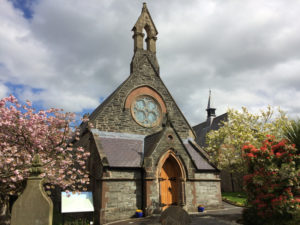 In the last Mystery Photo, Lou Camerio of Lilburn was the first to step up, identifying “…..St. Augustine’s Church in Londonderry, Northern Ireland. It is an Anglican Church.” Soon Jim Savadelis of Duluth also got the right answer. The photo came from Molly Titus of Peachtree Corners from the Titus family’s recent trip to Ireland.
In the last Mystery Photo, Lou Camerio of Lilburn was the first to step up, identifying “…..St. Augustine’s Church in Londonderry, Northern Ireland. It is an Anglican Church.” Soon Jim Savadelis of Duluth also got the right answer. The photo came from Molly Titus of Peachtree Corners from the Titus family’s recent trip to Ireland.
Allan Peel, San Antonio, Tex. gave additional information: “Today’s mystery photo is of the St. Augustine Church, a small 13th Century gothic style chapel of St. Augustine, inside the walled area of Derry, Northern Ireland. Derry is one of the oldest continuously inhabited places in Ireland, as people have been living in the area for thousands of years. Situated on the site of an early Columban Monastery established by St. Colmcille, the chapel’s long history is summarized by a reader board inside the church that states:
“A holy place since 546 A.D., people may have worshipped here for over 1,400 years. According to tradition St. Colmcille built a monastery on the top of the hill, replaced in the late 13th century by an Augustinian abbey. Though largely in ruins, the abbey served as the first church of the plantation settlers until St. Columb’s Cathedral was completed in 1633. Thereafter St. Augustine’s became known as ‘the little chapel.’ The present building dates from 1872.” Because of its small size and location near and inside the walls of the city, St. Augustine’s Church is known locally as the “Wee Church on the Walls.”
George Graf of Palmyra, Va. also wrote: “St. Augustine’s Church located at the end of Palace Street and sits near the city walls in Derry, Northern Ireland. St. Augustine’s Church is thought to be the site of the 6th Century monastery in the Doire Calgach area on the east side of the River Foyle near the city walls. According to oral and documented history, the site was granted by a local king. The monastery then remained in the hands of the federation of Columban churches who regarded St. Colmcille as their spiritual mentor. The present building dates from 1872 and is in the design of 13th Century gothic style.”
CALENDARThe state of the City of Peachtree Corners address will be on July 19 at the City Hall. The Peachtree Corners Business Association (PCBA) will be hosting the state of the city reception, which begins at 5 p.m. in the Community Chest room, with the state of the city address by Mayor Mike Mason at 7 p.m. The PCBA will announce news about its August charity event. The reception will be a catered event including food and beverages. Gwinnett Medical Center is the sponsor for this event.
![]() WORKSHOP: The Evolution of Data Security will be held July 19 from 8 to 9:30 a.m. at the Peachtree Corners City Hall, 310 Technology Parkway, by the Partnership Gwinnett Technology Forum. Ed Pimental, chairman of AgileCo Labs, will be speaking. Learn about steps banks are taking to reduce fraudulent activity, what e-commerce is expected to continue to grow, and how block chain technology supports the industry. The cost is $10. Register at http://web.gwinnettchamber.org/events/Partnership-Gwinnett-Technology-Forum-2612/details.
WORKSHOP: The Evolution of Data Security will be held July 19 from 8 to 9:30 a.m. at the Peachtree Corners City Hall, 310 Technology Parkway, by the Partnership Gwinnett Technology Forum. Ed Pimental, chairman of AgileCo Labs, will be speaking. Learn about steps banks are taking to reduce fraudulent activity, what e-commerce is expected to continue to grow, and how block chain technology supports the industry. The cost is $10. Register at http://web.gwinnettchamber.org/events/Partnership-Gwinnett-Technology-Forum-2612/details.
MANUSCRIPT WORKSHOP, Saturday, July 21 at 1 p.m. at the Lilburn Branch of the Gwinnett County Public Library. In partnership with the Atlanta Writers Club, the Library will host Emily Murdock Baker for this Writers’ Workshop. Writing a query letter has been known to strike fear into the heart of even an experienced writer. Emily Murdock Baker will decode the querying process and provide a special focus on choosing the correct comp (comparative/competitive titles) for your manuscript. She will discuss best practices for querying, deciding which agencies to query, understanding guidelines, how to write your query letter, and more. For more information, visit www.gwinnettpl.org or call 770-978-5154.
RIBBON CUTTING for the newest addition to the Eastside Medical Group, the Neurosurgery Atlanta group. This will be on July 25 from 4 to 6 p.m. Attendees will get to meet Dr. Michael Stechison, a practicing physician for 30 years, who is Eastside’s medical director for neurosciences. Visit the event at 1700 Tree Lane, Suite 470, Snellville.
Business Breakfast of Georgia Association of Latino Elected officials, July 26 at 8 a.m. at the LACC office, 4120 Presidential Parkway, Atlanta. Speaker will be Jerry Gonzalez, executive director, with the topic “The Latino Vote in Georgia.” To register, go to http://www.laccgeorgia.org/events/details/business-breakfast-the-latino-vote-in-georgia-80.
Free Photography Workshop at the Gwinnett Environmental and Heritage Center, 2020 Clean Water Drive in Buford on July 28 from 1 to 3 p.m.. Join the Georgia Nature Photographers Association for this informal talk and Q&A photography workshop. They will provide information about cameras, editing software, and tips for getting better photographs with the equipment you already have.
Wine, Walk, Shop and Sip in downtown Braselton on Thursday, August 2. This first such event will have check in between 4-6 p.m, followed by sipping stations open until 9 p.m. Only 100 tickets will be sold at $35 per person, upon proper ID check. Ticket holders get a wine cup, wrist band, punch card with map and tasting and food bite at each station. For more details, email apinnell@braselton.net.
OUR TEAMGwinnettForum is provided to you at no charge every Tuesday and Friday.
Meet our team
- Editor and publisher: Elliott Brack, 770-840-1003
- Managing editor: Betsy Brack
- Roving photographer: Frank Sharp
- Contributing cartoonist: Bill McLemore
- Contributing columnist: Jack Bernard
- Contributing columnist: Debra Houston
- Contributing columnist: George Wilson
More
- Location: We are located in Suite 225, 40 Technology Park, Peachtree Corners, Ga. 30092.
- Work with us: If you would like to serve as an underwriter, click here to learn more.
Subscriptions to GwinnettForum are free.
- Click to subscribe.
- We hope you’ll keep receiving the great news and information from GwinnettForum, but if you need to unsubscribe, go to this page and unsubscribe in the appropriate box.
© 2018, Gwinnett Forum.com. Gwinnett Forum is an online community commentary for exploring pragmatic and sensible social, political and economic approaches to improve life in Gwinnett County, Ga. USA.



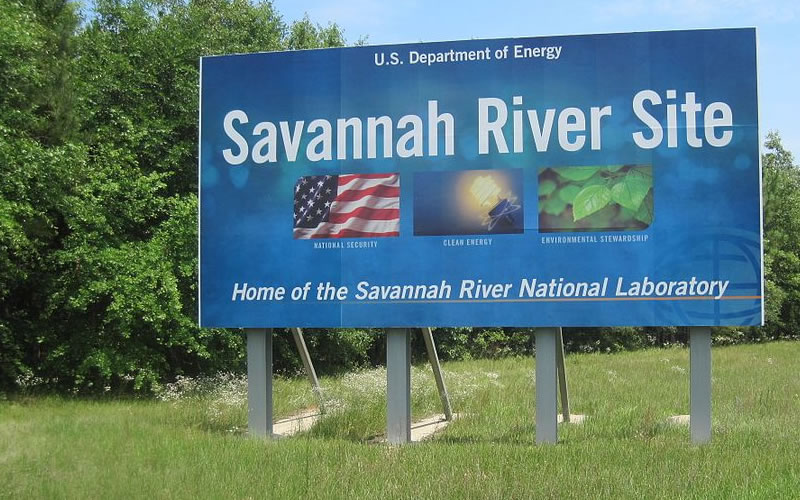



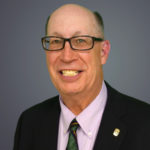
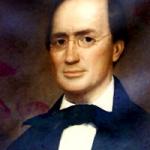
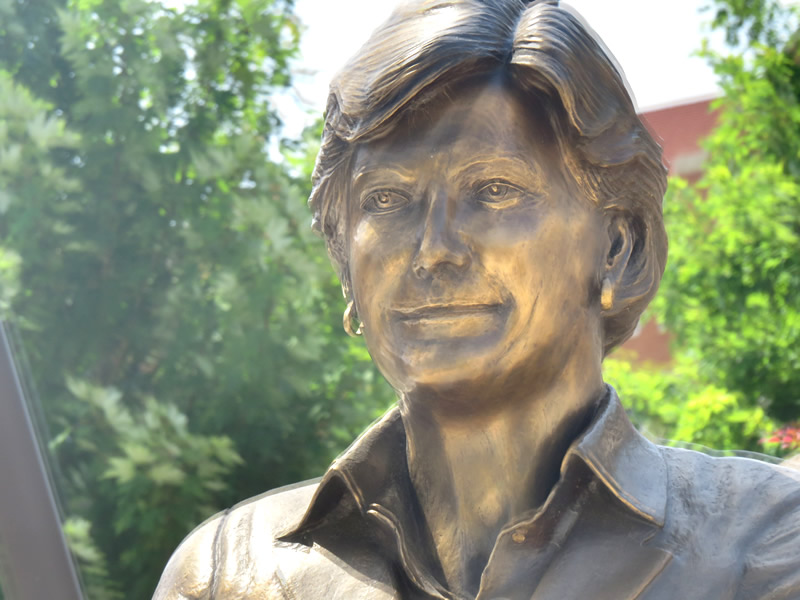
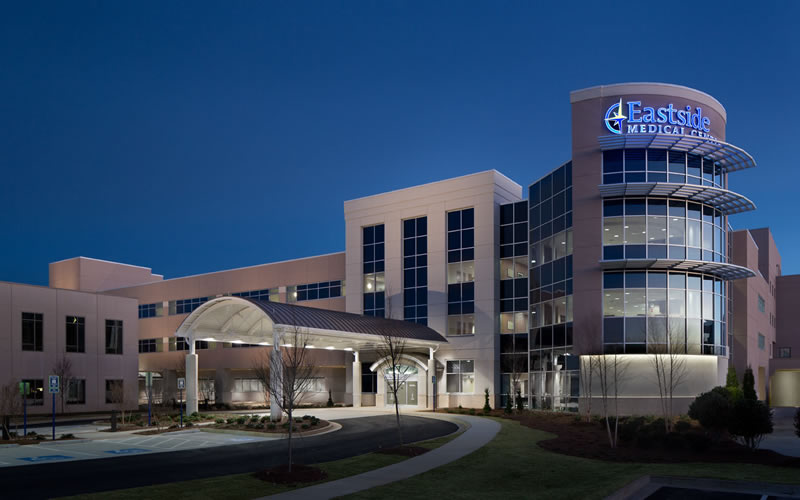







Follow Us